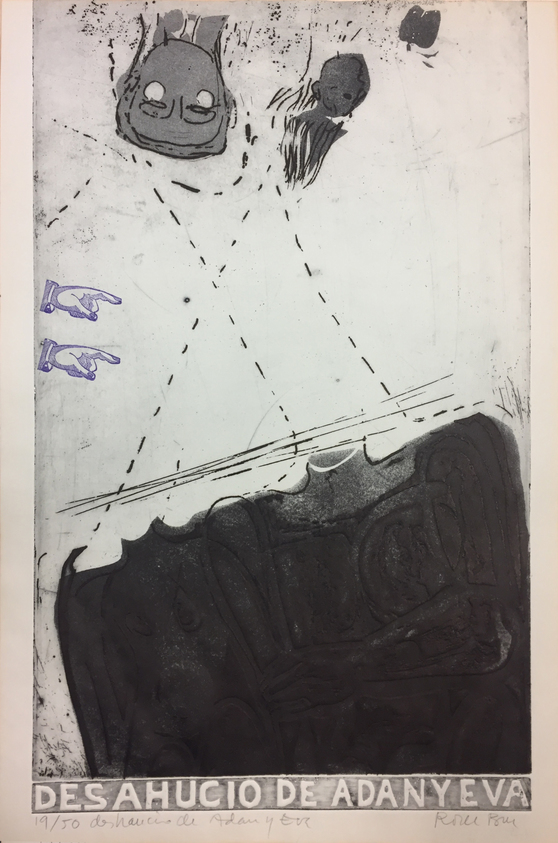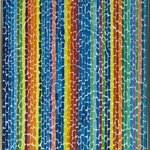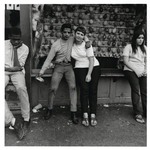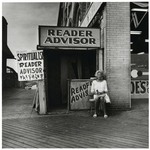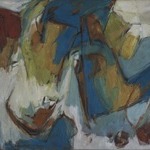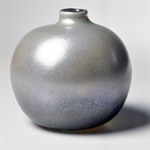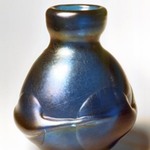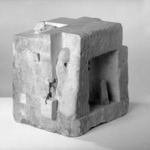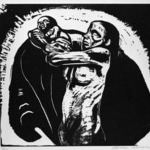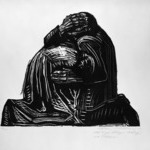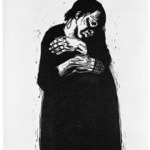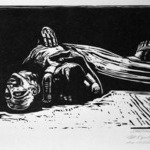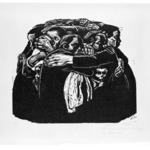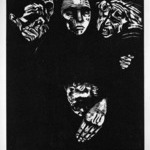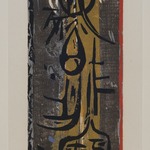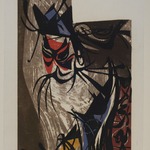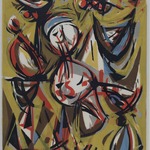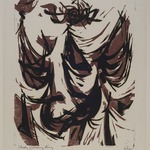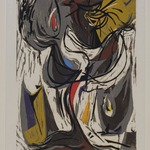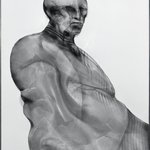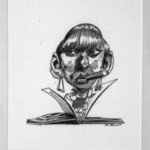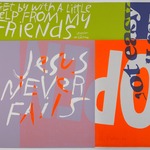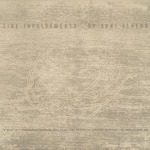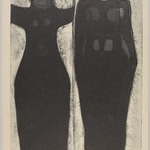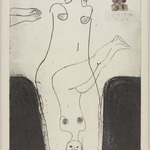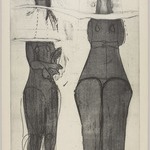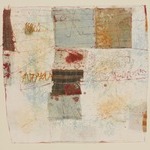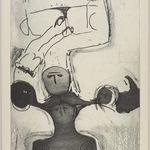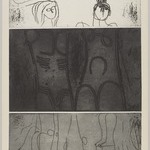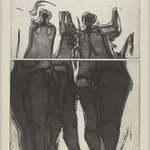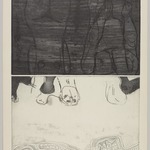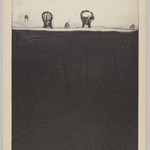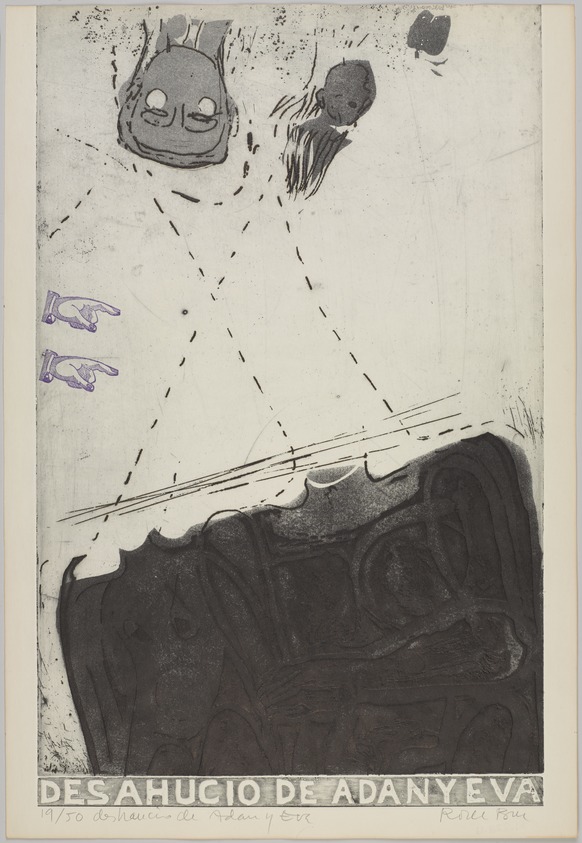
This image is presented as a "thumbnail" because it is protected by copyright. The Brooklyn Museum respects the rights of artists who retain the copyright to their work.
Desahucio de Adan y Eva
Contemporary Art
Roser Bru, a Catalan painter living in Chile, is known for her eclectic approach to image-making, often incorporating found images, stamps, and collage elements, as seen in this group of engravings and etchings from the 1968 series Diez Grabados Originales (Ten Original Engravings). These works emerge from the patriarchal Judeo-Christian narrative of Adam and Eve’s expulsion from the biblical Garden of Eden, the “fall of man” traditionally interpreted as beginning with a woman’s original sin. The way Bru imagines the story, both genders are subject to fragmentation, but the bodies of women and girls are the most studied and deconstructed, in a reference to their social status as dictated by Catholic traditions.
PORTFOLIO/SERIES
From the portfolio: "Diez Grabados Originales"
PUBLISHER
Ediciones Ellena
MEDIUM
Engraving and etching with ink stamp added
DATES
1968
DIMENSIONS
Sheet: 20 1/8 x 13 3/4 in. (51.1 x 34.9 cm)
Image: 19 1/4 x 12 1/4 in. (48.9 x 31.1 cm) (show scale)



SIGNATURE
Signed, "Roser Bru" lower right in graphite
INSCRIPTIONS
Title embossed in plate bottom and lower left in graphite
COLLECTIONS
Contemporary Art
ACCESSION NUMBER
68.228.1
CREDIT LINE
Ella C. Woodward Memorial Fund
MUSEUM LOCATION
This item is not on view
CAPTION
Roser Bru (Chilean, born Spain, 1923). Desahucio de Adan y Eva, 1968. Engraving and etching with ink stamp added, Sheet: 20 1/8 x 13 3/4 in. (51.1 x 34.9 cm). Brooklyn Museum, Ella C. Woodward Memorial Fund, 68.228.1. © artist or artist's estate (Photo: Brooklyn Museum, 68.228.1_PS9.jpg)
EDITION
Edition: 19/50
IMAGE
overall, 68.228.1_PS9.jpg. Brooklyn Museum photograph, 2021
"CUR" at the beginning of an image file name means that the image was created by a curatorial staff member. These study images may be digital point-and-shoot photographs, when we don\'t yet have high-quality studio photography, or they may be scans of older negatives, slides, or photographic prints, providing historical documentation of the object.
RIGHTS STATEMENT
© artist or artist's estate
Copyright for this work may be controlled by the artist, the artist's estate, or other rights holders. A more detailed analysis of its rights history may, however, place it in the public domain.
The Museum does not warrant that the use of this work will not infringe on the rights of third parties. It is your responsibility to determine and satisfy copyright or other use restrictions before copying, transmitting, or making other use of protected items beyond that allowed by "fair use," as such term is understood under the United States Copyright Act.
For further information about copyright, we recommend resources at the United States Library of Congress, Cornell University, Copyright and Cultural Institutions: Guidelines for U.S. Libraries, Archives, and Museums, and Copyright Watch.
For more information about the Museum's rights project, including how rights types are assigned, please see our blog posts on copyright.
If you have any information regarding this work and rights to it, please contact copyright@brooklynmuseum.org.
RECORD COMPLETENESS
Not every record you will find here is complete. More information is available for some works than for others, and some entries have been updated more recently. Records are frequently reviewed and revised, and we welcome any additional information you might have.
